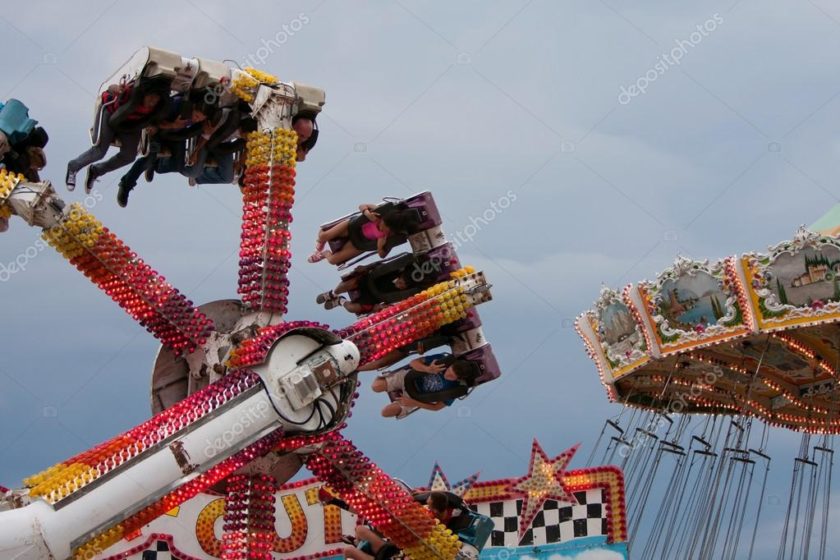August is the start of county fair season! The last month of summer break is often saved for fair food, farm animals, and carnival rides. But before you jump on the nearest roller coaster, parents should be aware of the dangers these parks and pop-up rides can pose when it comes to their children:
- At a fair in Tennessee back in 2016, three girls were injured after falling off a Ferris wheel. All the girls were taken to the hospital to treat injuries sustained from falling 35 to 40 feet down from the ride.
- In 2007, a teenager from Kentucky lost both her legs in a free-fall ride at Six Flags. The ride somehow malfunctioned and a cord was wrapped around the teen’s feet before the ride forcefully dropped.
- A 14-year-old girl in New York fell 20 feet down from an amusement park ride in Six Flags just last June. Luckily, a crowd of people banned together to catch her when she fell, but her injuries could have been extremely serious if the cable car had not been forcefully stopped.
At least 4,400 children every year are injured at amusement parks!
Amusement parks were created for the purpose of amusing visitors, yet thousands of children every year walk away from these experiences with injuries rather than happy memories. In a study performed by Nationwide Children’s Hospital, 92,885 children (ages 17 and under) were treated in emergency departments across the country for amusement ride-related injuries between 1999 to 2010, averaging about 4,423 a year. Most of the injuries occurred during the summer months- at least 20 children treated a day for injuries between May and September.
Most Common Ride Injuries
County fairs, standing amusement parks, and even arcade rides can all pose a danger to children, according to Nationwide Children’s Hospital. The most common injuries sustained by kids on all of these rides combined include:
- bumps and bruises (29%)
- sprains and strains (21%)
- cuts (20%)
- fractures (10%)
- other (20%)
The head and the neck were the most commonly injured body parts, accounting for 28% of ride-injures. Kids who sustain head injuries could suffer traumatic brain injuries depending on the impact, setting them up for the possibility of lifelong health consequences and developmental delays.
What’s Causing Ride Injuries
Sometimes, just getting on the ride can cause injury to your child! Most amusement park rides are made with durable materials that are not necessarily comfortable when you’re being jolted, jumbled, and flipped around at high speeds. Children sustain both minor and serious ride-related injuries caused by:
- falling on or against a ride (31.7%)
- hitting their body on a ride or being hit by something while riding (17.7%)
- catching a body part or their clothing on a ride component (7.2%)
- getting on or off the ride (6.3%)
- being struck by the ride, moving or stationary (2.6%)
Children are especially susceptible to injuries on amusement park rides because they may not know the safest ways to position their bodies or prepare for upcoming turns and twists. They also have a false belief that rides are safer than they really are, unable to understand the consequences of failed inspections or malfunctioning parts.
Inspection Slips for Rides
Injuries are not always the fault of the rider. There are several unsafe rides around the country that continue to operate every year, even with known risks of injury or even deaths- how are these parks getting away with operating dangerous rides?
According to an article released by CNN, not every amusement park is regulated as strictly as others. Fixed amusement parks were regulated by the Consumer Product Safety Commission until the 1980’s when the government turned the responsibility of park regulation over to state and local governments. Since every state is different, park and ride regulations are not standard across the country- some states don’t regulate rides at all.
Parents should always be aware that just because a ride is up and running at a fair or amusement park, does not ensure its safety.
- New York State rides are regulated through the NYS Department of Labor. They are responsible for inspecting amusement park and fair rides outside of New York City and require that all rides have a permit to operate.
- New York City rides are regulated by the city and must be licensed to operate. Licenses depend on the type of ride and duration of stay, and portable rides must be inspected each time they relocate.
If parents are concerned about any ride they are seeing in operation, they can contact either of these institutions to report a problem.
Food Can Hurt Too
Food-borne illnesses, when it comes to carnival and amusement park treats, can also cause your child pain and suffering this summer. Food trucks at fairs and festivals may not have easy access to the safety controls as restaurants do, such as the ability to monitor food temperatures, refrigeration, or provide proper hygiene practices for their employees. When they skip these steps, bacteria can easily contaminate your food, causing an unpleasant effect on your poor children as a result.
The Center for Disease Control and Prevention suggests inspecting food vendor trucks and carts for these safety concerns before purchasing any food:
- Clean/tidy workstations free from garbage and food debris.
- A sink for employees to wash their hands.
- Employees wearing gloves or using tongs when handling food.
- Refrigeration on site for raw ingredients or pre-cooked foods.
- A visible, recent inspection report or online version showing they are safe and hygienic.
If you’re not sure about any of these factors, it never hurts to ask. And if you’re truly worried about food poisoning from carnival food, bringing your own snacks is always the safest option.
Ride Precautions for Safer Rides
Parents are responsible for educating their kids on how to ride safely on rides, especially when it comes to younger children. Nationwide Children’s Hospital recommends reviewing these safety precautions before allowing your children on any rides this summer:
- Follow ride recommendations: If the ride your child wants to go on has a height, weight or age restriction, there is a good reason. Don’t trick the operators into letting your child on a ride they are not physically ready for.
- Follow seating and loading instructions: Each ride has its own method of getting on/off, seatbelt instructions, and rules for who should sit where on the ride. Following these rules will only help prevent injuries to your child.
- Use safety equipment: Seatbelts and safety bars are not optional. Always make sure your child is safely secured and that they are large enough for the safety equipment to tighten properly.
- Know your child’s behavior: Some kids are not emotionally ready for rides even if they are big enough. If you think your child will not follow the rules, don’t put them on the ride.
- Trust yourself: If a ride sounds or looks unsafe, chances are it could be. Use your instincts and don’t put your child on any ride that looks questionable.
For additional information on preventing ride injuries this summer, organizations such as Saferparks and International Association of Amusement Parks and Attractions (IAAPA) have several resources for parents to learn more about ride safety and the latest news on amusement park regulations.
No Excuse for Negligent Amusement Parks
With the lives of millions of children in their hands every year, there is absolutely no room for parks and fairs to be negligent just to make a profit from a ride. If your child has sustained an injury due to the negligence of an amusement park or fair ride, our aggressive personal injury lawyers are here to fight back. With over 20 years of experience representing personal injury victims, Siler & Ingber, LLP will provide you with a free case review to explore all your options when it comes to seeking justice for your child’s unnecessary injuries. Contact us at 877-718-6079.

The Impact Of Marijuana Legalization
Would New York legalizing recreational marijuana increase road accidents? We took a look at the stats in our latest study.
View StudyThe Law Office of Siler & Ingber, LLP
Phone:
1.516.294.2666
Address:
301 Mineola Blvd. Mineola, NY 11501
Subscribe to our Newsletter
SubscribeThis is a unique website which will require a more modern browser to work!
Please upgrade today!

